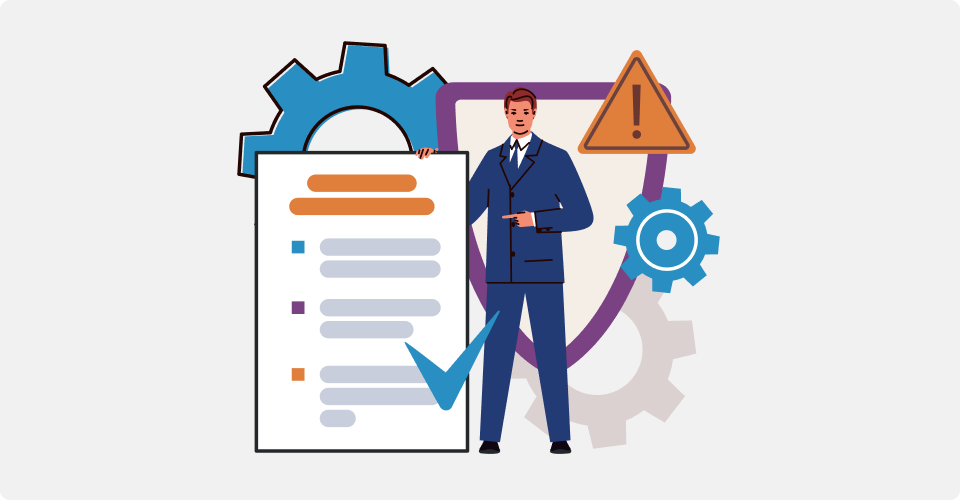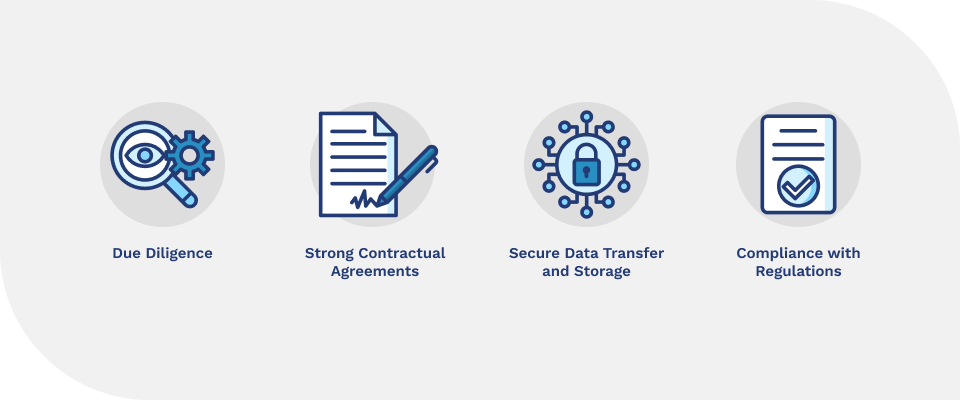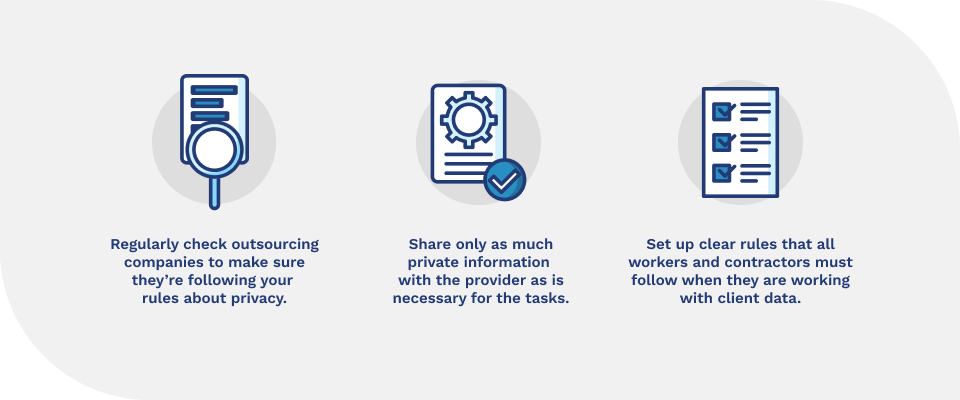As the legal sector continues to outsource, law companies must deal with one of the most important parts of their practice: keeping client information confidential. Legal companies can save money and work more efficiently by outsourcing legal services like research, document review, and paralegal support.
However, this employment strategy does raise valid concerns about the safety of private client data. Since lawyers are obligated to keep client information secret, how can they make sure that engaging in offshore staffing does not violate this fundamental obligation?
This article will talk about the legal and moral duties that come with keeping client information private. It will also talk about the steps that law firms can take to keep sensitive data safe when they hire outside professionals to do work for them.
Ethical and Legal Obligations in Legal Services

Client privacy is a vital component of the legal field. Professional rules and laws, such as the American Bar Association’s Model Rules of Professional Conduct, say that lawyers must keep client information private. The duty of confidentiality applies to all information relating to the representation of a client, whether conveyed verbally, electronically, or in writing.
In addition to their ethical duties, firms must also follow the rules that protect personal information. The California Consumer Privacy Act (CCPA) and the General Data Protection Regulation (GDPR) in the European Union are some laws that restrict sharing, storing, or handling personal data without meeting strict requirements.
Even when legal tasks are outsourced, the law firm still must keep client data safe, not the outsourcing provider.
How to Ensure Client Confidentiality When Outsourcing Legal Tasks
Although outsourcing can make things more efficient, it can also be risky if it’s not done correctly.
Here’s how law firms can maintain client confidentiality when outsourcing legal work:

1. Due Diligence
It’s important to do a lot of research on an outsourcing service before signing on with them. When a service provider handles sensitive legal data, law firms should look at their security measures, how they screen employees, and their general reputation. Strict security measures, like data encryption, two-factor authentication, and frequent security audits, should be in place at all providers.
Big Outsource, an outsourcing company with more than ten years of experience, for example, has strict privacy and data security limits. Big Outsource is regularly ranked as the #1 Outsourcing Partner for SMEs by Clutch.co. This is because it has over 200 employees who specialize in IT outsourcing as well as digital marketing outsourcing and is a firm that takes client data security very seriously.
2. Strong Contractual Agreements
One of the most important parts of outsourcing is making sure that the law firm and the outsourcing provider have strong confidentiality clauses in their legal agreement. These sections should spell out the provider’s duty to keep client information private, describe the safety measures that will be used to keep data safe and list the consequences for breaking the rules.
The contract should also include rules about who owns data and how long it should be kept. For example, companies must make it clear that any client data must be returned or thrown away when the outsourcing relationship ends.
Making these terms clear lowers the risks and makes sure that everyone knows what their duties are.
3. Secure Data Transfer and Storage
Another important thing to think about when outsourcing legal services is making sure that client data is sent and kept safely. Law companies should only work with service providers that send sensitive data through safe file-sharing methods, like encrypted emails or safe cloud platforms. Also, outsourced work should be kept in safe places that only authorized staff can get to.
At Big Outsource, all data transfers happen over encrypted channels, and client data is kept on secure servers that are checked for security frequently. This makes sure that private legal information is safe from people who shouldn’t have access to it or from leaks.
4. Compliance with Regulations
When you outsource legal services, you may have to deal with personal information that is protected by privacy laws. Companies need to make sure that the outsourcing company follows these rules, whether they are GDPR, CCPA, or something else. If the law firm does not comply with the rules, it could face fines and damage to its reputation.
When you outsource across countries, there may be extra problems. As an example, the GDPR has strict rules about sending personal data outside of the European Union. Law firms must make sure that the outsourcing companies they work with are licensed to handle client data from around the world.
Addressing Potential Confidentiality Risks
Confidentiality is always at risk when legal services are outsourced, even if stringent regulations are followed. These risks could be caused by human error, like someone getting into a client’s data without permission, or by sophisticated cyberattacks aimed at outsourcing providers.
To reduce these risks, law firms should:

- Regularly check outsourcing companies to make sure they’re following your rules about privacy.
- Share only as much private information with the provider as is necessary for the tasks.
- Set up clear rules that all workers and contractors must follow when they are working with client data.
In the case of a breach, a response strategy must be in place. This plan should include how the company will let clients who were affected know about the compromise, what steps will be taken to fix it, and any legal options the company and its clients have.
In summary, outsourcing legal services can provide tremendous benefits to law firms, but safeguarding client confidentiality is essential. Law firms can lower the risks and keep private data safe by researching outsourcing companies, putting strong privacy clauses in contracts, and making sure that data is transferred and stored safely.
Law firms can get the benefits of outsourcing while still following their moral duty to keep client information private. They can do this by taking the right steps, staying vigilant, and choosing the right outsourcing partner.
Big Outsource: An Ideal Legal Outsourcing Partner
Since its establishment more than ten years ago, Big Outsource has a strong history of handling outsourced legal work well while upholding the highest standards of privacy. Their team of more than 200 professionals specializes in outsourcing IT and digital marketing. Clutch.co named them the #1 Outsourcing Partner for SMEs because they care so much about security and privacy.
Outsourcing without sufficient security measures may expose sensitive data, resulting in legal ramifications and breaches of ethical commitments. Schedule a consultation with Big Outsource to learn how it can protect client confidentiality through a variety of methods, including encrypted data transfers, secure storage, and compliance with privacy regulations. Secure your outsourcing with Big Outsource!


